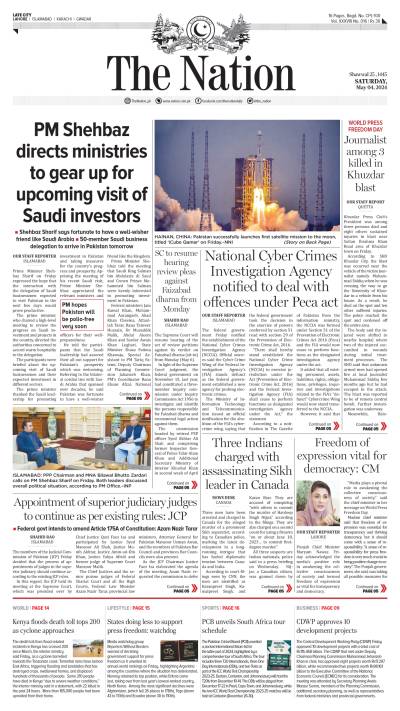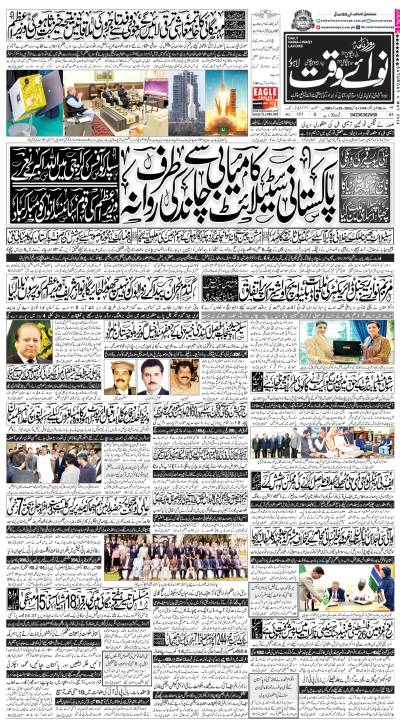KARACHI, the country's economic and commercial capital, which has been witness to an unfortunate cycle of feuding between some political parties and ethnic groups, entailing heavy death toll for some time past, continues to be in the grip of violence, giving anxious moments to both the citizenry and the law enforcement agencies. The latest incident in which the Jeay Sindh Qaumi Mahaz leader, Mushtaq Kaskheli who happened to be the President of its Thatta chapter, was gunned down by two motorcyclists while the party activists were holding a protest demonstration at Pehlwan Goth on Friday against the murder of a party worker early this week points to the volatility of the situation in the city. The attackers also injured one of the protesters as well before one of them was killed in the return fire and another injured and taken into custody. JSQM General Secretary Dr Safdar Sarki has alleged that the real target was the party President Bashir Qureshi, who luckily escaped the shooters' wrath. It was no surprise then that the JSQM workers resorted to heavy aerial firing, blocked the highway at certain points, set ablaze a coach, burnt tyres and ransacked property to vent their outrage, and the rioting spread to various parts of the province. There was shutter-down of businesses and shops in some towns and a sit-in at the Thatta-Karachi Highway. Apart from Karachi, Thatta, Tando Jam, Tando Muhammad Khan, Rato Dero and Nawabshah were some of the places where the shocked residents took out rallies and in sheer anger became violent. No doubt, the heterogeneous mix of the sprawling metropolis, with a history of violence, tension and rivalry, does not make it easy for the authorities to help create the spirit of understanding about peaceful co-existence among the disparate elements. Yet, it is obligatory for the provincial government, which in reality represents the different warring sections of the population and is composed of the PPP, the MQM and the ANP, to reflect on the harmful nature of the consequences of its apparent policy of drift. Otherwise, there is a strong danger of the violence taking a serious ethnic turn. Major actors in the unending gory drama have to be convinced that since they have to live in the city side by side, a life of fear and insecurity is hardly an acceptable option. For their own good as well as the good of the country, calm and peace in Karachi, the nerve centre of our industry and commerce, is of paramount importance. A disturbed Karachi would inevitably cast its long shadows on the economic and social health of Pakistan.
Sunday, May 05, 2024
Vicious violence
Samarkand to stage FIFA Futsal World Cup Uzbekistan 2024 draw
11:12 PM | May 04, 2024
Dr Ahmar Sohail Basra assumes charge as Radio Pakistan Lahore station director
4:55 PM | May 04, 2024
Hearing against Ali Amin Gandapur adjourned until May 17
4:53 PM | May 04, 2024
May 9 perpetrators now giving statements about talks with military: Khawaja Asif
4:52 PM | May 04, 2024
Will provide free medicines to 200,000 patients at their doorstep: CM Maryam
4:51 PM | May 04, 2024
Tourist Tragedy
May 04, 2024
Ending Polio
May 04, 2024
Will Justice Prevail?
May 04, 2024
Fair Play
May 03, 2024
Parliamentary Stalemate
May 03, 2024
Current state of affairs
May 04, 2024
Cryptocurrency revolution
May 04, 2024
The accessibility revolution
May 03, 2024
Maternal well-being
May 03, 2024
Tackling poverty
May 02, 2024
ePaper - Nawaiwaqt
Advertisement
Nawaiwaqt Group | Copyright © 2024





